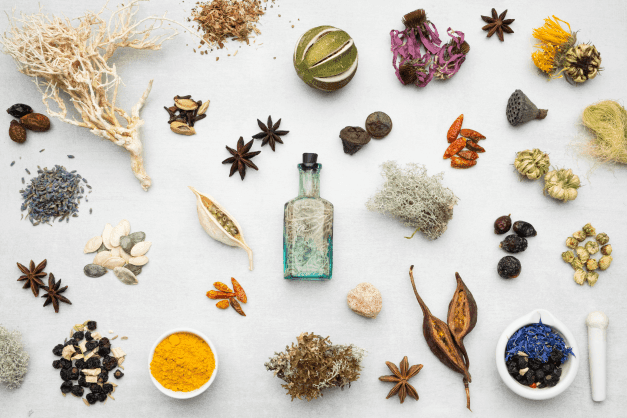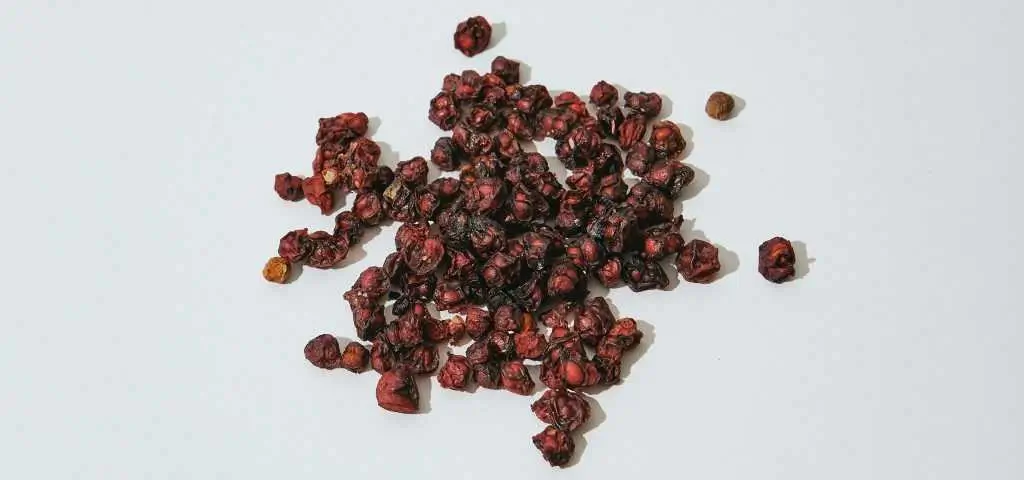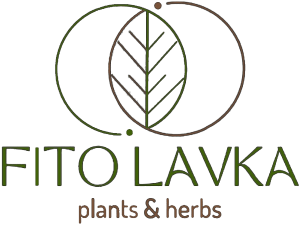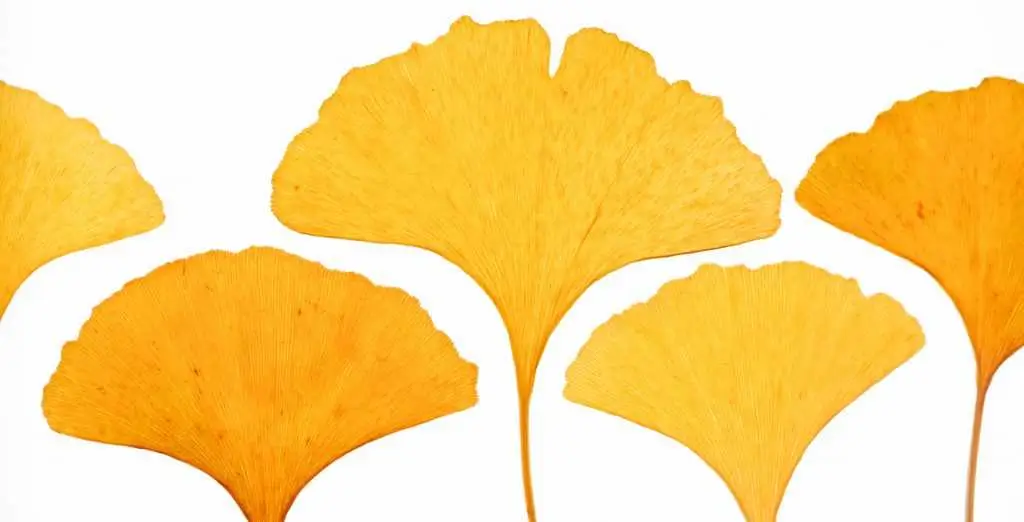Blog
Energy herbs: 7 herbs that invigorate better than coffee

The modern lifestyle, filled with stress, technology, and a huge number of daily tasks, deprives even the most vigorous and tireless people of energy.
Fortunately, there are natural sources of vigor and strength that have been tested for centuries – herbs of energy. These natural adaptogens help the body cope better with stress, strengthen the immune system, and increase energy and endurance!Unlike coffee, tonic herbs are not addictive and are safe for long-term use. Another advantage is that they do not stimulate the body excessively and do not cause overstimulation of the nervous system.In addition, herbal adaptogens retain their effect for a long time, and along with increasing tone, they help the body adapt to life’s shocks. These herbs help our bodies respond to both long-term and short-term physical, emotional, or mental stress.
They also boost immunity, help fight fatigue, and increase mental performance.

Schisandra chinensis
One of the most famous power engineers. Both the leaves and berries of this plant are suitable for the drink.- It has a very powerful tonic effect. This substance increases the excitability of the nervous system, increases blood pressure, stimulates the respiratory and cardiovascular systems, but it does not lead to excessive overexcitement.
- The fruits of this plant contain many organic acids: citric, malic, and tartaric. Traditional healers have long used lemongrass as a tonic.
- It also increases physical endurance and helps to recover faster after exercise. This is due to a decrease in the amount of lactic acid in the muscles and an increase in glycogen in them.
- Schisandra is an excellent adaptogen, it helps the body to adapt to changes in the environment, strengthens the immune system and improves metabolism, it is a great remedy for increased mental and physical stress.
Ginseng (male root)
Ginseng is another plant that is known worldwide as an effective means of increasing energy production. It improves brain function, making it indispensable not only in sports but also in everyday life.- Ginseng tincture is considered to be a strong energizer and stimulant of the immune system (i.e. as soon as you feel unwell, it’s time to remember this plant).
- It can be added to tea or simply to water. It’s all the same effect. And not for nothing ginseng is called “the root of life”. In Asian countries, it is used as a medicine.
- It has a tonic effect and is useful for depression and fatigue.
- It works as an anti-inflammatory agent, lowers blood sugar levels, and increases the body’s resistance to heat, cold, infection, stress, or physical activity.
- At the same time, it is not addictive, does not cause drug dependence, and does not disturb sleep.
Eleutherococcus
Eleutherococcus has been used in traditional Chinese medicine for centuries, but it began to be used in the rest of the world only at the beginning of the 20th century.- It helps to increase the body’s endurance, increase efficiency, and improve appetite.
- It has a beneficial effect on the nervous system and strengthens the immune system, helps with menstrual irregularities, as well as difficult menopause.
- It is as invigorating as coffee in the morning, and it is also recommended for stress and neurosis: this plant helps to adapt the body to an aggressive environment and increases its endurance.
- It is often used by athletes as a muscle stimulant and adaptogen.
Sagan-daila
Sagan-Dayla (Adams Rhododendron): shamanic tea to increase vitality.The translation of the name of this shrub sounds like a herb that prolongs life.- Launching protective processes in the human body. Allows the immune system to effectively cope with stressful situations that arise on a daily basis.
- Increases endurance and performance. Has a beneficial effect on potency in men and increases sexual desire
- A natural antioxidant. The aging process in the body slows down.
- It significantly improves memory, increases the level of attention and concentration.
- It has a pronounced bactericidal and anti-inflammatory effect, relieves swelling. It reduces blood viscosity, strengthens the walls of blood vessels, stimulates the cardiovascular system and normalizes heart rhythm.
Ginkgo biloba
This plant can relieve us of problems with the brain. It is often advised to be consumed by people in old age.- Improves blood circulation
- Enhances cognitive abilities: thinking, attention, memory and imagination.
- Increases endurance under increased mental stress
- Helps to cope with chronic fatigue
Rhodiola rosea (golden root)
It is a powerful adaptogen and is not inferior to Ginseng in terms of its properties. That is, i.e. gives the body the ability to withstand many stress factors: psychological, physical, infectious, tumor, aging factors, etc.Rhodiola rosea is especially useful for people experiencing professional burnout, accompanied by a decrease in motivation and increased fatigue.- Rhodiola rosea is an excellent stimulant of the immune system.
- Rhodiola increases resistance to fatigue, reduces fatigue, and makes the body more resistant to stress.
- It has a stimulating effect on the nervous system and improves performance.
- The plant also reduces anxiety and has an antidepressant effect.
- It is effectively used in case of physical fatigue and during recovery from illnesses.
- Golden root has a positive effect on the functioning of the gonads, improves potency.
Maral Root
This plant, like the previous ones, is known as a good biostimulant and adaptogen. It helps to restore the body after serious illnesses.- It has a beneficial effect on the cerebral cortex, increases efficiency, reduces irritability and increases stress resistance.
- Tones the cardiovascular system, improves blood flow and dilates blood vessels.
- Maral Root improves blood circulation in the pelvic organs and improves potency.
- This herb has been found to have an anabolic effect, increasing muscle protein synthesis.
- This plant also has anti-inflammatory and anti-cancer effects, and helps in the treatment of psoriasis.
Rules for taking adaptogens, contraindications and possible side effects
A reasonable approach to the use of herbal adaptogens will help both to obtain a positive result in recovery and to avoid possible negative consequences.Adaptogens should be taken in certain courses, i.e. which is always unlike most herbal teas. Adaptogens are best taken in the spring and fall, when the likelihood of getting sick increases. The course can be 2-4 weeks on average, with 2-3 courses repeated per year. It can be the same plant or different ones, that is. alternate them.A one-time or unscheduled intake of an adaptogen is perfectly acceptable, for example, at the peak of an epidemic (flu, ARVI), or if a family member is ill. Or as a recovery course after an illness.Adaptogens are usually taken in the morning to avoid sleep disturbances. In phytotherapy, adaptogens are often used in combination with soothing herbs, divided by day: ginseng, Eleutherococcus, Rhodiola, or Schisandra are taken in the morning, and valerian, cyanosis, or Calming Collection are taken at night.It is important to follow the dosage. The dosage depends on both the type of plant and the characteristics of the organism. At the same time, if you are taking any adaptogen for the first time, you should start with the lowest dose.For example, start taking lemongrass or ginseng with just 2-3 drops. Take 1-2 leaves per cup of tea.Observe the reaction (blood pressure, pulse, mood, sleep). These are the most likely side effects when taking adaptogens. You can keep a diary, write down your feelings in notes or a calendar on your smartphone to eliminate one-time reactions and coincidences.Contraindications and warnings
As for contraindications, these are pregnancy (in all cases), lactation (there are exceptions), children’s age (it varies depending on the plant, and the dose is correspondingly lower), acute diseases with fever, neuroses with increased excitability (adaptogens tone the body), persistent hypertension, myocardial infarction, chronic insomnia.It is optimal to drink 2 courses per year for 1 month. If the body is severely weakened, a serious illness or injury has been suffered, the course can be extended individually.Herbs – against puffiness.Edema is the result of a violation of the water-salt balance in the human body, which occurs due to fluid retention in the tissues.If there is an excess of fluid, swelling may form on the face or limbs. Edema can even affect internal organs, which is very dangerous because it is invisible from the outside and difficult to diagnose. When fluid accumulates in the tissues, blood circulation is impaired, and the functioning of the liver and kidneys decreases. In the absence of proper therapy, this can lead to complications. This problem is quite common and can be caused by various reasons.The cause of edema can be the person himself:
- unhealthy diet;
- drinking large amounts of liquid and alcohol in the evening;
- lack of sleep, which became chronic;
- excess salt.
No less serious causes of edema can be:
- infectious and viral diseases (ARVI, flu, conjunctivitis);
- traumatic eye injury;
- chronic lack of sleep, intermittent sleep;
- constant alcohol consumption, smoking;
- excessive consumption of salt, fatty foods, smoked meats, pickles;
- improper functioning of the pancreas (diabetes mellitus);
- increased intracranial pressure;
- stressful situations;
- cosmetics are the wrong choice;
- uncomfortable position chosen for sleeping;
- tattooing or Botox injection;
- neglectful attitude to hygienic face cleansing.
The use of herbs to remove accumulated fluid provides this effect.
- Inhibition of the activity of a special enzyme – carbonic anhydrase. This allows you to quickly and painlessly remove excess fluid from the body.
- Regulates the level of hormones that are actively involved in water-salt metabolism. This effect is also observed due to the effect on the enzyme carbonic anhydrase. This helps to eliminate swelling and edema, including in the legs.
- Ensuring the body is cleansed of toxins, eliminating the accumulation of metabolic and decay products. Excess fluid is removed from the kidneys, which also stimulates the elimination of the inflammatory process.
- Guaranteed reduction in blood pressure and heart stress.
- Ensuring kidney function, including filtering
The most popular plants:
- birch leaves;
- peppermint, lemon balm;
- milk thistle, flax;
- Ivan tea, St. John’s wort;
- bearberry, lingonberry leaf;
- dog rose, juniper cranberry and lingonberry fruits;
- fennel, seeds
- anise, parsley;
- fenugreek;
- chamomile;
- nettle, horsetail
How to drink it?
To make diuretic tea, you need to pour 1 tsp. 200 ml of boiling water to the herbal mixture and leave for 10-15 minutes. Take a glass twice a day. The treatment lasts up to several weeks. Do not drink diuretic decoctions at night to avoid interrupting sleep.Contraindications to taking herbal diuretics:
- hypersensitivity to the components of medicinal plants;
- children under the age of 7;
- pregnancy; lactation; liver cirrhosis;
- increased concentration of uric acid in the blood.

